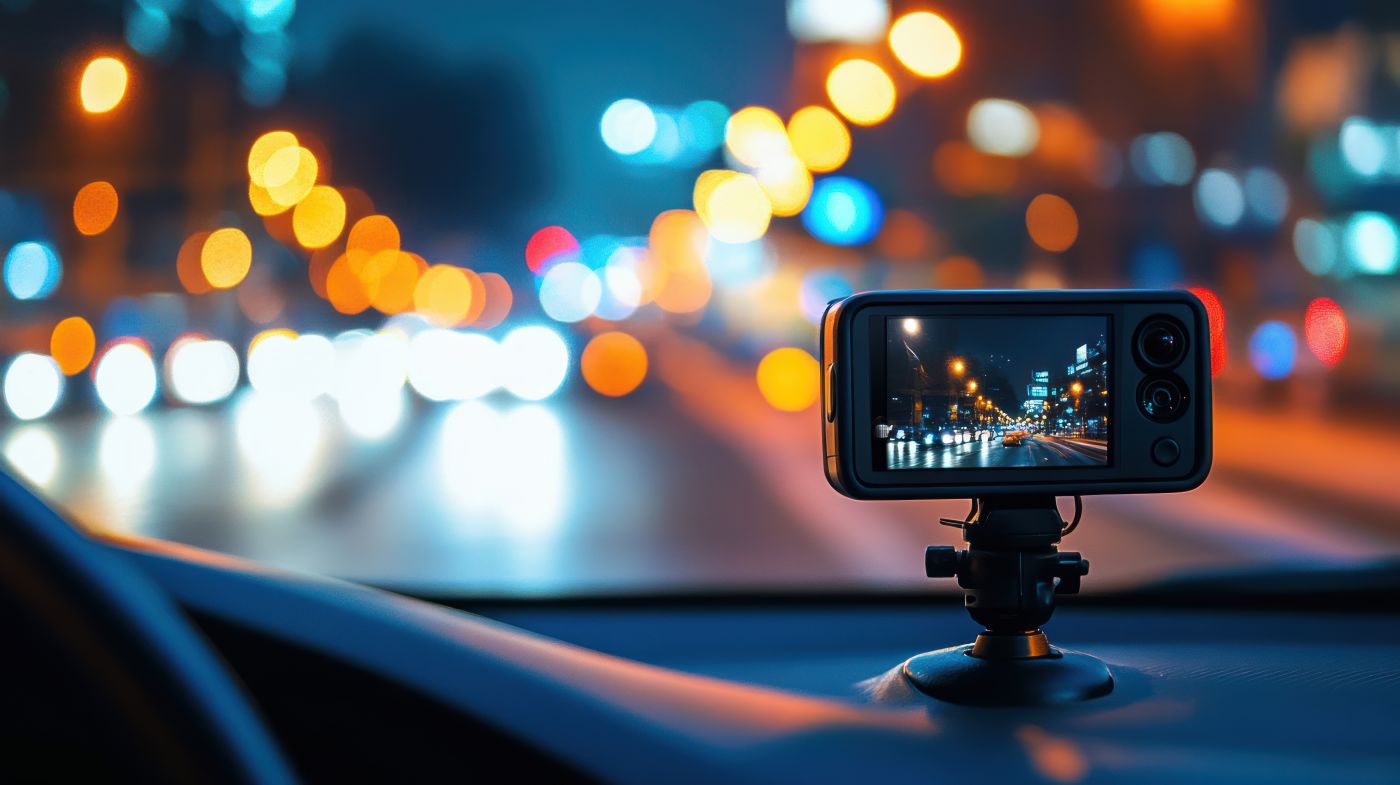Can Dashcam Footage Help Your Car Accident Claim?

Car accidents can be stressful, confusing, and costly. One of the most important aspects of any car accident claim is proving what really happened. In Florida, where roads are busy and accidents are frequent, dashcam footage has become an increasingly valuable tool for drivers.
As collision attorneys serving Tallahassee, Florida, The Pelham Law Firm can often see how video evidence can strengthen a claim and help our clients recover the compensation they deserve.
Here, we’ll go over what dashcam footage is, how it can be used in car accident claims, and why working with a collision attorney can improve your chances of success. We’ll also cover some tips on using dashcams legally and effectively in Florida.
Dashcam footage is video recorded by a small camera mounted on your vehicle’s dashboard or windshield. These cameras continuously record the road ahead — and sometimes even the interior of the car — capturing everything that happens while you’re driving.
The footage can provide a clear, unbiased record of an accident, showing details such as:
The speed of vehicles
Traffic signals and signs
Road conditions
Actions of drivers involved
Weather conditions
Because dashcams record in real time, they can capture events exactly as they unfold, making them powerful pieces of evidence in accident claims.
Car accident claims often boil down to determining fault and the extent of damages. Insurance companies and courts rely on eyewitness testimony, police reports, medical records, and physical evidence. But eyewitness accounts can be unreliable or biased, and police reports don’t always include every detail.
Dashcam footage offers an objective, visual account that can clarify:
Who caused the accident
Whether traffic laws were followed
The sequence of events leading to the crash
The severity of the collision
With video evidence, it’s harder for an insurance company or opposing party to dispute what happened. This can speed up the claim process and increase the likelihood of a fair settlement.
Using dashcams is generally legal in Florida, but there are a few points to keep in mind:
Florida is a two-party consent state for audio recording, meaning you need permission from all parties before recording conversations. However, many dashcams only record video or record audio inside your own vehicle, which is usually allowed.
Avoid placing the dashcam where it obstructs your view while driving, as this could violate traffic laws.
Don’t tamper with or edit the footage in ways that alter the truth. Authenticity matters in claims and court proceedings.
If you record inside your vehicle and have passengers, consider informing them about the recording to respect privacy.
Being aware of these guidelines helps keep your dashcam use lawful and credible.
If you’ve been in an accident and your dashcam recorded the event, follow these steps:
Save the footage immediately. Dashcams often overwrite old recordings automatically, so back up the relevant video before it’s lost.
Do not alter the footage. Keep the original file intact to preserve its authenticity.
Share the footage with your collision attorney. Your attorney can review it carefully and use it to support your claim.
Provide the footage to your insurance company. Only do this if advised by your collision attorney.
Avoid posting the video publicly. This is especially important when it comes to social media, which could be used against you later.
Using your dashcam footage wisely can help to protect your claim, but it's important to follow the advice of your collision attorney.
A collision attorney can maximize the value of your dashcam footage by:
Examining the video frame-by-frame to identify critical details.
Correlating footage with police reports, medical records, and witness statements.
Consulting accident reconstruction experts if needed.
Using the footage to negotiate with insurance adjusters for a fair settlement.
Presenting the footage effectively in court if your case goes to trial.
Dashcam evidence may persuade insurance companies to offer better settlements or accept liability more quickly.
While dashcams are powerful, they’re not a guaranteed solution for every claim. Some limitations include:
Limited field of view. Dashcams mostly record what’s in front; they might miss important angles or events.
Poor video quality. Low-resolution cameras can produce blurry or dark footage.
Missing audio. Without sound, some details or driver communications aren’t captured.
Obstructions. Dirt, glare, or bad weather can obscure the view.
Short recording durations. Some dashcams overwrite footage quickly if not saved.
That said, even imperfect footage often adds significant support to claims when combined with other evidence.
If you don’t have a dashcam yet, here are some tips to consider when selecting one:
Look for high video resolution (1080p or better) for clear images.
Choose models with wide-angle lenses to capture more of the road.
Consider cameras with loop recording that saves recent footage automatically.
Pick a dashcam with G-sensors that detect sudden impacts and save those clips separately.
If you want audio, check whether the camera records inside the cabin and complies with local laws.
Some models offer cloud storage or Wi-Fi for easy access to footage.
Investing in a quality dashcam can be a smart move to protect yourself on Florida’s busy roads.
If you don’t have dashcam footage, don’t worry. Many clients don’t. An attorney can use other evidence such as:
Police reports
Witness statements
Expert accident reconstruction
Photographs of the scene and vehicles
Medical records
Dashcams are helpful, but not essential. What matters most is building a strong case, and that’s what we do every day as collision attorneys.
Don’t leave your claim to chance or face insurance companies alone. Reach out to an experienced accident attorney in Tallahassee, Florida, to discuss your case and learn how we can help you make the most of every piece of evidence, including dashcam footage. Contact The Pelham Law Firm to learn more.